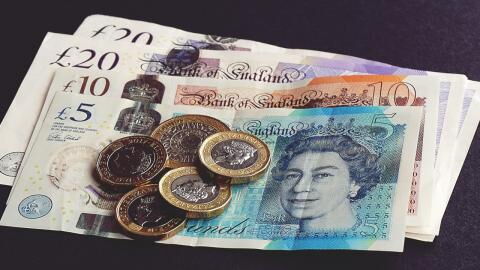At the start of the year, following the festivities of Christmas, many Brits are watching their spending. It is important to be aware of changes in your finances, which is why it’s good to know about upcoming payments from the government or the possibility of unexpected fines. That’s why we’ve already covered the last £299 cost of living payment, and warned you about the possibility of a £2.5k fine for making this common mistake.
Discover our latest podcast
One key difference this year will see certain benefits paid on a different date in the UK. 2024 is a leap year, meaning that February has 29 days rather than 28. Leap years have 366 days instead of the usual 365, and they come about almost once every four years. According to timeanddate.com, this system keeps our calendar 'in alignment with Earth's revolutions around the sun' as it takes a little more than 365 days for the Earth to circle once around the sun:
If we didn't add a leap day on February 29 almost every four years, each calendar year would begin about 6 hours earlier in relation to Earth's revolution around the sun
This change is set to mean that certain benefits will be paid earlier into claimants’ accounts in 2024. Here’s everything you need to know.
Universal credit
The main benefit to be aware of is Universal Credit: claimants who receive this payment may receive it early depending on their normal payment dates. For example, if you usually receive the payment on the 30 or 31 of the month, you will get it on the 29 instead. The reason for this is simple: it is the last working day of the month, which falls this year on a Thursday.
Claimants have been warned that they will need to factor this change into their finance planning. You’ll be able to check whether you’ve received the payment using a particular code. The reference appears on your bank statement as the date of the payment, a unique ID, and the closing letters ‘DWP UC’.
You should also be aware that, if you are due to be paid on 28 February, this will remain unchanged. If your payment falls over the weekend, the normal system will still be in place: you’ll be paid on the working day before as usual. Official government guidelines state:
Benefits are usually paid straight into your bank, building society or credit union account. If your payment date is on a weekend or a bank holiday you’ll usually be paid on the working day before.
State pension
For those receiving state pension, there will be no change to the payment date. This is because your National Insurance number dictates the day you will receive your monthly sum. The last two digits determine the date. For instance, if those digits are between 00 and 19, the day your state pension is paid is on a Monday. Here are the full details:
- 00 - 19: Monday
- 20 - 39: Tuesday
- 40 - 59: Wednesday
- 60 - 79: Thursday
- 80 - 99: Friday
If any benefit payment is not paid on time, you should double check the date and then contact your bank. You can also contact DWP to ask for clarification.
Read more:
⋙ This is how much money you should have in your savings account
⋙ New parking laws threaten £100 fine for drivers in this city
⋙ Thousands slapped with hefty fine for failing to pay their TV licence, here’s how much you’ll be charged
Sources used:
Mirror: DWP 'most underclaimed benefit' payment set to rise to £5,645 a year - can you claim?
The Sun: POT LUCK Exact code to spot if you’ll get paid benefits early in February thanks to leap year















